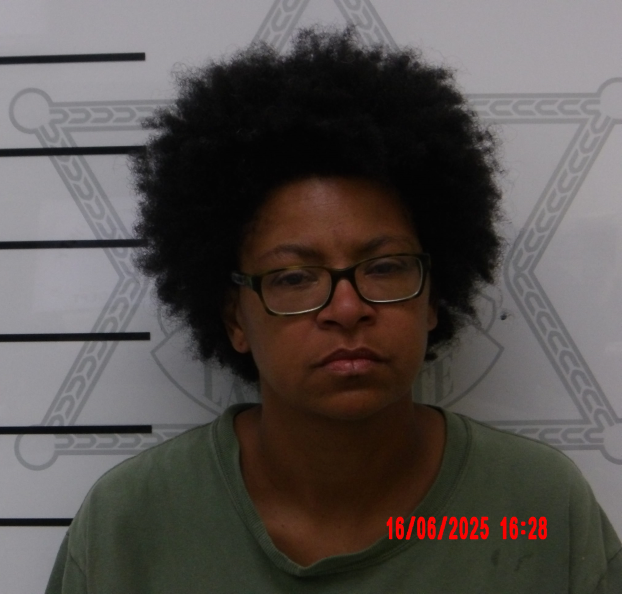Presley’s task force to address rural internet “crisis”
Published 10:30 am Tuesday, August 7, 2018
The lack of high-speed internet and cell phone service in rural Mississippi is at crisis levels, according to Public Service Commissioner Brandon Presley.
During the first meeting of the Lafayette County Task Force on improving cellular telephone and high-speed internet service, Presley explained the different ways citizens can help document the lack of cellular telephone and data service in their area, first and foremost through a free smartphone app approved by the Federal Communications Commission.
“We’re going to work our fingers to the bone to get as many people as we can working on this. It’s going to take an army of citizens,” Presley said. “Where you can help us is using your own experience – knowing where that call drops every time you’re on Highway 7, every time you’re home and lose a signal.”
Presley said he encourages all residents to use the app, which conducts speed tests to determine the degree of inadequacy of cell reception. Having people from a variety of service providers will make a bigger impression, he said, because the FCC’s current funding maps show that Mississippi has adequate service in almost every county, even though that information is false. If there is not enough evidence to prove the maps are incorrect, the state could lose millions of dollars in funding.
In terms of high-speed internet alone, Presley compared the lack of internet in rural areas today to the lack of electricity at the turn of the century.
“Here’s how stupid the FCC’s approach is: they say that if one person in a census block has coverage, the whole census block is covered,” he said. “That’s ridiculous. Mississippi is 55 percent rural, and we’ve got a lot of areas that are left behind.”
Many task force members are from areas that routinely experience little-to-no cell phone or internet coverage, including Harmontown, Hurricane Hills and Coontown Landing, among others.
According to Presley, the state of Mississippi ranks 49 out 50 in connectivity to high-speed internet service, as defined through the FCC definition of broadband service. Connect that to the state’s decrease in population for three years in a row, he said, and it’s easy to see lack of internet service is killing rural Mississippi.
“Statistic after statistic shows that folks don’t want to move anywhere that doesn’t have high-speed internet service,” Presley said. “Have we lost population solely because of a lack of high-speed internet? I don’t think so. But you can bet it’s played a part. This is the lightbulb of 2018.”
The solution to the crisis, Presley said, is clear: allow electric cooperatives to provide high-speed internet to their members. Doing so, he explained, would make high-speed internet available to a wider variety of people at a more affordable rate. Plus, he said, there are approximately $600 million in nationwide grants for this purpose.
However, Mississippi state law prohibits electric cooperatives from providing internet service to members – and it’s the only state to do so. This “horse and buggy law,” as Presley said, is a hindrance to the progress of Mississippi and its people.
“Electric cooperatives were put in place 85 years ago to provide electricity, when they were really put in place to change the quality of life for rural America,” he said. “It’s in Mississippi’s DNA to tackle these problems through our cooperatives. The first electric cooperative in the United States of America was in Corinth, Miss. We’ve been here before. The same challenges and excuses apply.”
Presley said he’d already spoken to several state legislators who expressed interest in a bill that would allow electric cooperatives, including Oxford’s own Rep. Jay Hughes and Sen. Gray Tollison. After personally examining the electric cooperative in Marion County, Ala., which is less than 20 miles from the Mississippi state line, Presley said he sees no reason the same successes couldn’t happen in the Magnolia State.
Should the bill be passed, he said, other internet providers, such as AT&T and MaxxSouth, would not be affected in terms of coverage area. In fact, he said, he encourages them to expand coverage so rural residents have more options.
“This bill will not prohibit anybody from extending service. If a cable company wanted to cover every square inch of Lafayette County today, they could. If they wanted to cover every square inch of Lafayette County the day after the governor signs this bill, they can,” Presley said. “Nobody’s stopping them. This is just saying, ‘Do not hold rural Mississippi hostage’ to a handful of providers who are not going to serve you, but don’t want anyone else to, either, like an old ex-girlfriend.”
Presley will spend the rest of the month of August traveling and creating more task forces in various counties in North Mississippi. Anyone interested in serving on the Lafayette County task force should contact Presley’s office at 1-800-637-7722.





